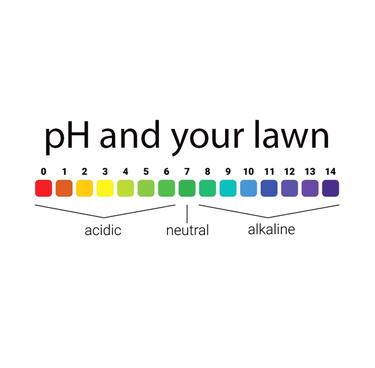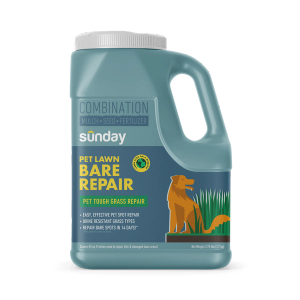
pH (potential hydrogen)
pH (potential hydrogen) is a scale that ranks acidity or alkalinity of a substance. It's measured on a scale from 0–14, with a pH of 7 considered neutral. Among other things, pH is used to measure soil acidity to determine if the soil has an ideal level for the species of plant being cultivated; the ideal pH for most lawn grasses is slightly acidic around 6.4, ideal range is (5.9–6.9). That said, most grass species are very adaptive to a wide range of pH and can thrive outside of ideal pH levels.
High pH
Regions*
Generally soils west of the Mississippi have higher pH levels, the Pacific northwest being an exception to this rule.
Action point
How to lower pH
Peat Moss. Peat moss will add both organic matter and lower pH levels. It can be lightly topdressed into your lawn ¼–½". Make sure the grass blades are well above the level of the peat after it's raked in. This process can be repeated yearly for best long term results.
Sulfur. Elemental sulfur is a solid choice to make soil more acidic. It takes effect slowly. Follow manufacturers' directions for applications.
Compost. Similar to peat moss, you are adding organic matter to the soil as well as adding a mildly acidic substance. This process can be repeated yearly for best long term results.
Neutral pH
Regions*
Midwest, Great Lakes
Action Point
Low pH
Regions*
Eastern, southeastern, Pacific northwest
Action Point
Lime. By far the most popular to raise pH is to use lime. There are two types of limestone that you will commonly see: Dolomitic limestone and calcitic limestone. Both are good choices to raise soil pH. Look for a pelletized version as this will be easier to spread evenly. You want to avoid hydrated lime as you can easily over apply this type of lime. Follow manufacturers' directions for applying lime, and note that application rates will vary significantly for your soil type.
Wood ash. Another method to raise pH, it's an excellent way to recycle your burnt ashes from your fireplace or fire pit. It's generally best to use this when re-establishing a lawn area as it should be mixed into the soil. Wood ash can also be mixed into compost to increase pH of compost.
*Keep in mind the region soil types can vary significantly from the regional pH generalizations listed above


















